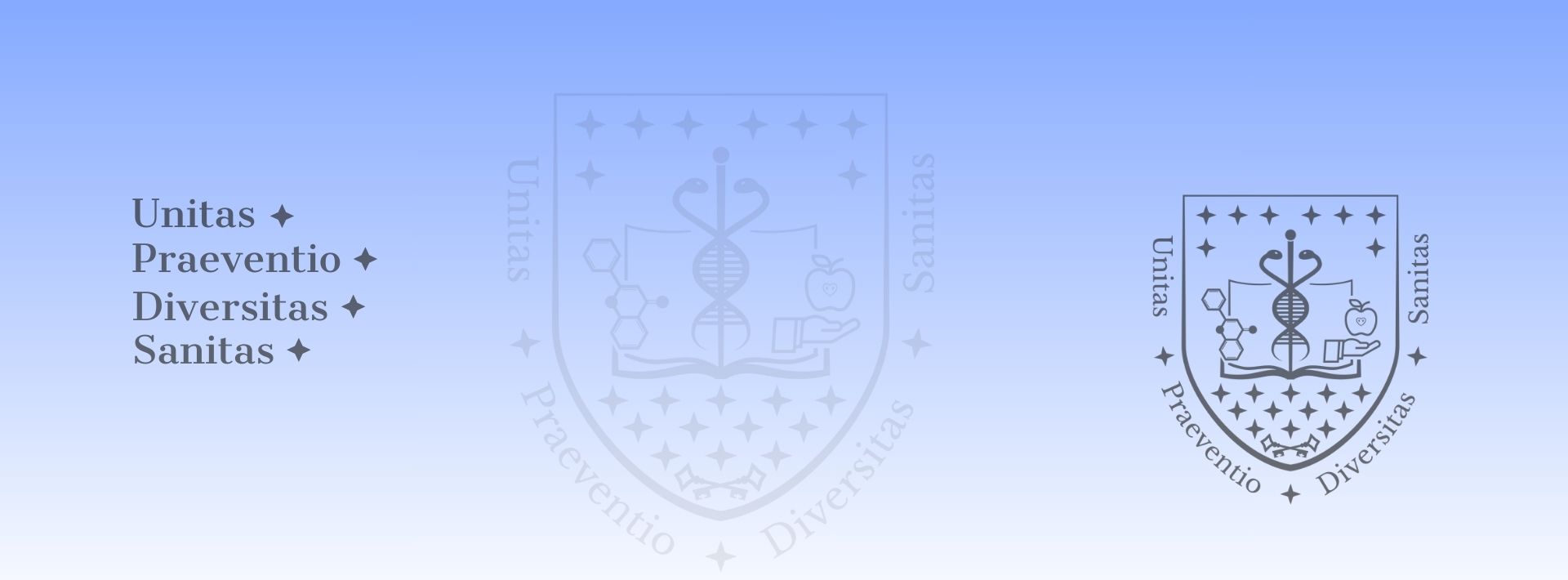Data
Official data in SubjectManager for the following academic year: 2024-2025
Course director
-
Kiss István Zoltán (Népeg)
professor,
Department of Public Health Medicine -
Number of hours/semester
lectures: 20 hours
practices: 8 hours
seminars: 0 hours
total of: 28 hours
Subject data
- Code of subject: OAP-NOT-T
- 2 kredit
- General Medicine
- Pre-clinical modul
- spring
OAA-KET-T finished , OAP-MO2-T parallel , OAP-PA1-T finished
Course headcount limitations
min. 5
Topic
The aim of the subject is to form a preventive attitude. The physicians have to know the different preventive strategies and they have to be able to use them in the practice.
After Public Health 6 the students must take a public health final exam which includes the material of all the Public Health subjects (Public Health 1 - 6).
Lectures
- 1. The role of nutrition in non-communicable disease (especially cardiovascular disease) prevention. - Kiss István Zoltán (Népeg)
- 2. Nutrition and cancer. - Kiss István Zoltán (Népeg)
- 3. Diet and nutrition. Basics of healthy diet. - Szabó István (Népeg)
- 4. Dietary recommendation. Dietary status in the world. - Szabó István (Népeg)
- 5. Special dietary practice; risks and benefits - Kiss István Zoltán (Népeg)
- 6. Epidemiology and prevention of prion diseases. New infectious diseases. - Varga Csaba (Népeg)
- 7. Plant-derived bioactive components in diet. Chemoprevention. Food supplements and functional foods. - Kiss István Zoltán (Népeg)
- 8. Food contaminants, food additives. Food safety. - Kiss István Zoltán (Népeg)
- 9. Human genetics in public health I. - Kiss István Zoltán (Népeg)
- 10. Human genetics in public health II. - Kiss István Zoltán (Népeg)
- 11. Genomics and epigenetics in public health. Nutrigenomics. - Járomi Luca
- 12. Molecular carcinogenesis, biomarkers, prevention. - Járomi Luca
- 13. The epidemic process. Routes of transmission. Procession of infectious diseases. Epidemiological status in the world. - Bőszné Murányi Edit
- 14. Airborne infections. - Bőszné Murányi Edit
- 15. Enteral infections I. - Bellyeiné Pozsgai Éva
- 16. Enteral infections II. Viral hepatitis. - Bellyeiné Pozsgai Éva
- 17. Epidemiology and prevention of haematogenic and lymphogenic infections - Bőszné Murányi Edit
- 18. Hospital hygiene. Nosocomial infections. Sterilization, disinfection. - Gyöngyi Zoltán
- 19. Epidemiology and prevention of sexually transmitted diseases. - Kiss István Zoltán (Népeg)
- 20. Genetically modified organisms. - Gyöngyi Zoltán
Practices
- 1. Nutritional screening.
- 2. Maintaining and/or restoring energy balance: physical activity and nutrition. Epidemiology of obesity.
- 3. Food safety lab practicals I.
- 4. Food safety lab practicals II.
- 5. Possibilities for prevention of epidemics.
- 6. Vaccination.
- 7. Epidemiology and prevention of infections transmitted through the skin.
- 8. Epidemiology and prevention of zoonoses.
Seminars
Reading material
Obligatory literature
Edit Paulik: Public Health and Preventive Medicine; Medicina Publishing House, Budapest 2013.
Literature developed by the Department
Educational material uploaded on PotePedia.
Notes
Recommended literature
Conditions for acceptance of the semester
Participation in practicals is obligatory which is registered.
Absences should not exceed 2x45 min. Otherwise signature of grade book is denied.
Mid-term exams
-
Making up for missed classes
Students may attend the practical of another group on the same week. Pre-consultation with practical leader is needed.
Exam topics/questions
Public Health 4.
1. Role of nutrition in prevention of cardiovascular diseases
2. Role of nutrition in prevention of cancers
3. Principles of healthy diet
4. Epidemiology of malnutrition and nutritional deficiencies
5. Dietary guidelines
6. Special nutritional considerations: vegetarianism
7. Special nutritional considerations: Mediterranean diet, DASH- (Dietary Approaches to
Stop Hypertension) diet
8. Special nutritional considerations: trendy diets
9. Assessment of nutritional status, nutritional screening
10. Epidemiology of obesity
11. Dietary supplements and functional foods
12. Food additives
13. Food safety, food safety testing
14. Chemoprevention
15. Genetically modified organisms
16. Interaction of environmental and genetical factors in disease development
17. Genomics and epigenetics in public health. Nutrigenomics
18. Molecular basics of carcinogenesis
19. Primary and secondary factors of epidemic process (virulence, source of infection, means of transmission, susceptible host)
20. Nosocomial infections. Sterilization, disinfection
21. Infectious diseases worldwide
22. Prevention of infectious diseases: vaccination, chemoprophylaxis
23. Epidemiology and prevention of vaccine-preventable diseases, mandatory immunisation for children
24. Epidemiology and prevention of airborne bacterial infections
25. Epidemiology and prevention of airborne viral infections
26. Characteristics, types, occurrence and prevention of enteric infections
27. Epidemiology and prevention of enteric bacterial infections
28. Epidemiology and prevention of enteric viral infections
29. Epidemiology and prevention of enteric helminth and protozoon infections
30. Epidemiology and prevention of viral hepatitides
31. Epidemiology and prevention of haematogenic and lymphogenic infections
32. Epidemiology and prevention of infections transmitted through the skin
33. Epidemiology and prevention of zoonotic helminth and bacterial infections
34. Epidemiology and prevention of zoonotic protozoon and viral infections
35. Epidemiology and prevention of sexually transmitted diseases (excluding AIDS)
36. Epidemiology and prevention of AIDS
37. Epidemiology and prevention of prion diseases
38. New infectious diseases. Bioterrorism
Examiners
- Bellyeiné Pozsgai Éva
- Berényi Károly
- Gyöngyi Zoltán
- Horváth-Sarródi Andrea
- Kiss István Zoltán (Népeg)
- Kiss Zsuzsanna (Orsós Zsuzsanna)
- Szendi Katalin
- Varga Csaba (Népeg)
Instructor / tutor of practices and seminars
- Bellyeiné Pozsgai Éva
- Bérczi Bálint Dániel
- Berényi Károly
- Bőszné Murányi Edit
- Rákosy-Vokó Zsuzsa
- Szendi Katalin
